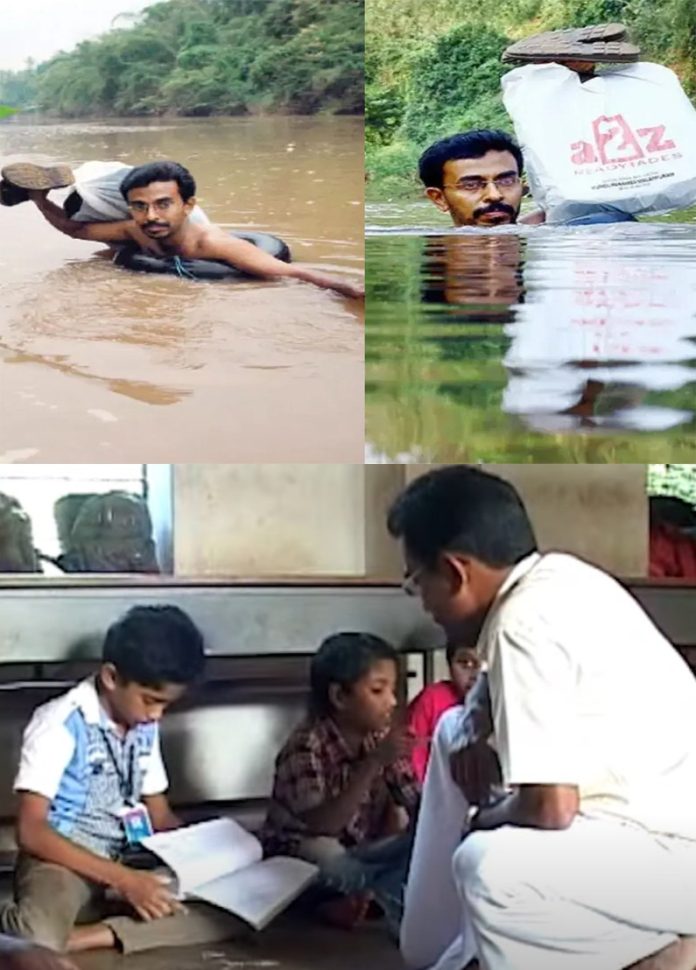– M Rafi Ahmed
Close on the heels of a news item on tribal students swimming across Koteswari river to reach school in Dhar district, Madhya Pradesh comes yet another incident of a school teacher’s involvement to swim across Kadalundi River to reach the school on time in neighbouring Kerala. As a matter of fact, the Mathematics teacher got his calculation right in ensuring the students’ education isn’t affected at any cost.
In a bid to save time and ensure punctuality, the teacher wears a waterproof bag to carry his clothes and teaching materials and changes after reaching the other side, and heads straight to the classroom, often before the morning bell rings. This has been the case for him right from joining the school. Really pathetic to read the story which raised many questions on why the local panchayat seldom took any initiative on this count.
It is learnt that Abdul Malik has chosen to swim across the Kadalundi River from 1994 to avoid three-hour travelling in multiple buses to reach the school which is a laborious task. “Better to swim than depend on unreliable transport,” Malik reportedly told the media. Interestingly, the teacher is affectionately called ‘Tube Master’ by his students. No doubt, his punctuality received accolades from the department.
In a step further, Malik teaches swimming to students above grade five, helping them overcome their fear of water and equipping them with a vital life skill. In short, he has inspired both the students and teachers. But for the social media platforms, the teacher’s story wouldn’t have come to light. According to Logical Indian, Abdul Malik’s story is a shining example of how perseverance, empathy, and a sense of duty can transform not just individual lives, but entire communities.
Malik’s environmental advocacy further demonstrates how personal commitment can drive collective action for a cleaner, more sustainable future. At the Logical Indian, we believe stories like Malik’s deserve to be celebrated and supported, as they remind us of the extraordinary impact of ordinary citizens. According to Project Nightfall, the teacher carries his clothes, books, and lunch in a sealed plastic bag that he holds above the water’s surface for the swim.
Abdul Malik’s case isn’t an isolated case as there are a plethora of schools situated in high range and interior areas across several States where more often than not the tribal students have to cross river streams to reach their schools. What is irking is the fact that despite repeated representations to the concerned authorities, no tangible action has been taken so far. This only proves to show the apathy of the powers-that-be.
Sadly, the department of education’s convergence project which is referred to as Access Roads for All Learners (ARAL) which seeks to provide accessible and safe road networks for teachers, personnel, learners, and parents through the construction of roads and bridges leading to remote and far-flung schools, has been put on the back-burner sans any effective action.
[The author is former Indian Express and Deccan Chronicle chief]




